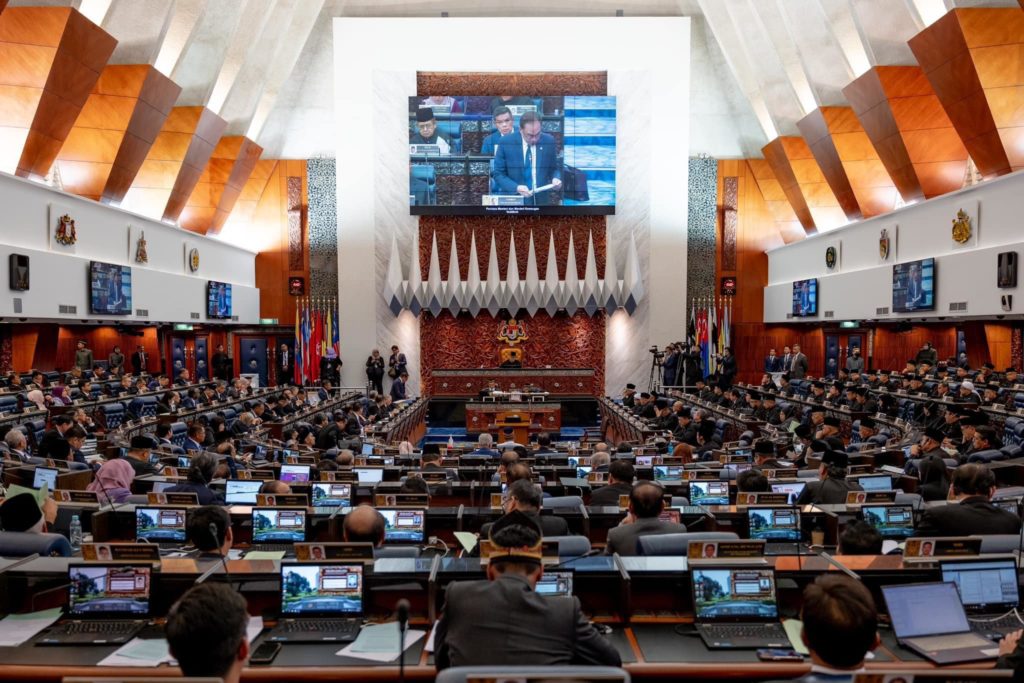
Why should elected officials be remunerated for not performing their duties?
PETALING JAYA, Sept 4: The Center to Combat Corruption and Cronyism (C4 Center) is supporting a suggestion made by Dewan Rakyat Speaker Tan Sri Johari Abdul last week that the meeting allowances payable to Members of Parliament (MPs) should be deducted if they fail to attend Parliamentary sittings.
The allowance comes under Section 5 of the Members of Parliament (Remuneration) Act 1980 and set at the rate of RM400 per day.
In a statement issued here today, C4 Center said the meeting allowance should not be considered an entitlement but an assistive tool to facilitate MPs’ attendance in Parliament.
“Based on a reading of the Hansard dated 18.06.1980 (when the Members of Parliament (Remuneration) Act 1980 was debated), the increased salary and allowances for MPs was intended at the time to support less wealthy elected officials in performing their official duties and responsibilities. Of course, the continued relevance of this assertion over 40 years later is debatable, yet the principle is still applicable – financial standing must not be an impediment to any person wishing to be an elected MP.
“Therefore, the continued provision of this allowance is useful, but if an MP does not perform the very purpose which the allowance is meant to support, there is no logical basis for them to receive the payment at all.”
However, the allowance could be only one part, as C4 Center raised more questions in relation to MPs and on their mix of parliamentary duties and functions as members of GLC boards.
“In response to Johari’s suggestion, several MPs have reportedly voiced their concerns – stating that they may be absent from Parliamentary sittings due to other official duties within their constituencies or their involvement with government-linked companies (GLCs). This leads to a pressing question: should MPs – who are elected by voters to advocate on their behalf in the federal legislature on matters of national concern – be allowed to hold positions which impede that duty?
“There is nothing preventing an MP from also being an elected member of the State Legislative Assemblies, and numerous elected officials currently sit on GLC boards as well.
“If these roles are preventing MPs from performing their responsibilities, the Government should seriously consider restraining this overlap of duties.”
Foregoing one’s duties as an elected official in favour of their involvement with GLCs is also another example of the insidious nexus between business and politics, where elected officials seem more focused on doing business instead of representing their voters, C4 Center said.
“This is further exacerbated by the lack of regulation on political financing, which enables GLCs to be potentially used as vehicles to siphon funds for politicians’ personal interests.”
The engagement of MPs in GLCs not only hampers their effectiveness in their roles as parliamentarians but also poses challenges for the GLCs they lead, the watchdog body said.
“This is due to the divided attention between their constituency work and their responsibility to ensure the GLCs fulfill their objectives, a commitment that demands significant time and dedication. Furthermore, many MPs are simultaneously engaged in their personal business ventures and other professional work which makes it infeasible for them to fully dedicate themselves to their parliamentary duties.”
C4 Center also called for longer Parliamentary session to allow for more laws and reforms to be tabled. Increasing the duration of Parliamentary sittings would allow MPs more time for debate and also to utilise measures such as questions to ministers or private member’s bills.
“The proposed extension of the Parliamentary session aligns with the current government’s agenda of reforming institutions, the economy, and various legislation. In order for these reforms to be executed efficiently, every MP should fully commit to their responsibilities and actively engage in substantive debates, parliamentary select committees, and task forces established by the government to pursue these reform initiatives.”
Along with its support for the proposal to deny payment of the meeting allowance to MPs who fail to attend sittings, C4 Center also called for a speedier introduction of laws to govern political financing, to regulate political appointments to GLCs, to prevent MPs from being appointed to GLCs, and to prevent the holding of both Dewan Rakyat and State Legislative Assembly seats simultaneously.
— WE